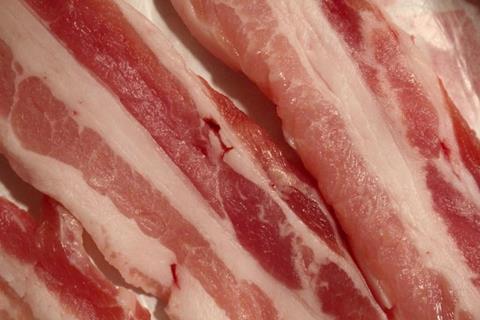Earlier this week the American College of Physicians report, published in its journal Annals of Internal Medicine a ‘study of studies’ that reviewed the entire body of work that has been carried out in relation to eating red meat and potential health risks . This new review exposes evidence from previous studies linking meat with cancer as ‘weak’ and only ‘able to provide low or very low certainty in their conclusions.’

Nick Allen, CEO of the British Meat Processors Association said: "This report highlights a gap in the evidence from scientific studies. Instead of flawed observational studies, dietary advice should be based on higher quality randomised control trials that compare differing but strictly controlled amounts of red meat consumption over a long time frame. To date, only twelve have been carried out, none of which offer any conclusive or even consistent evidence."
Based on the most comprehensive review of evidence to date, the bottom line is that reducing red meat could have little or no effect on whether or not an individual goes on to develop cardiovascular disease or cancer.
The findings expose a number of flaws in how these studies were conducted and point out that ‘many studies selectively report results’. This is highlighted by the fact that two studies working from exactly the same data sets manage to reach opposite conclusions with one reporting a ‘significant risk’ and the other reporting no health risk.
Part of the problem has been how those studies were conducted. Most were observational which means they were based on notoriously unreliable self-reports of food consumption. Many didn’t take into account other lifestyle factors that may have an equal or greater impact on health.
For example, would someone who consumes a quarter pounder every day be more likely to accompany that with fries and a sugary drink instead of fruit and water? What other lifestyle habits like smoking and drinking alcohol is that same person also likely to have?
Commenting on how this affects consumers, Allen added: ‘It raises questions about how dietary advice is communicated to people. Official guidelines based on evidence with ‘low to very low certainty’ coupled with headline-grabbing but unsubstantiated claims in the media and on social media are not helpful.
"It prompts some people to make drastic changes to their diet without having an accurate picture of how this will affect their health. These people run the risk of inadvertently substituting a healthy, balanced diet with one that lacks essential nutrients and has the opposite effect on their health."
The National Sheep Association (NSA) said it was pleased, but not surprised, to see the new report showing there is no significant link between red meat and cancer.
NSA chief executive, Phil Stocker, commented: "Sheep farmers have long said eating red meat is not a health risk provided, as with everything else, it is eaten in sensible quantities."
NSA is further encouraging consumers to pick British, as UK grass-based extensive systems mean the sheep are turning naturally occurring grass into micronutrients beneficial to human health. Stocker continued: “This report shows the correlation linking red meat consumption and cancer is limited and shows the evidence is inadequate to support calls for reduced consumption.”
Commercial perspective
John Pallagi, co-Founder of Farmison & Co said: "Following the release of this study, it's great to see a more open and balanced discussion around red meat happening in the media.
"At Farmison & Co, we believe moderation is key. As a curator and pioneer of ethical, British meat produce, we strive to promote a balanced diet.
“Red meat is essential for many biological processes, such as the production of hormones and vitamin D, and is also a rich source of B vitamins such a B12 which is not available from any other sources.
"However, the focus needs to be on great British produce and transparency across genetics (British breeds) that are ethically reared. There are a number of comprehensive studies that show that meat from free-range, grass-fed livestock is healthier than that from animals confined indoors in factory farms, and fed largely on grain. The meat of grass-fed, outdoor reared animals has a much better balance of omega-3 and omega-6 fatty acids, and is richer in conjugated linoleic acid, which is thought to protect against cancer and heart disease.”
This story was originally published on a previous version of the Meat Management website and so there may be some missing images and formatting issues.















